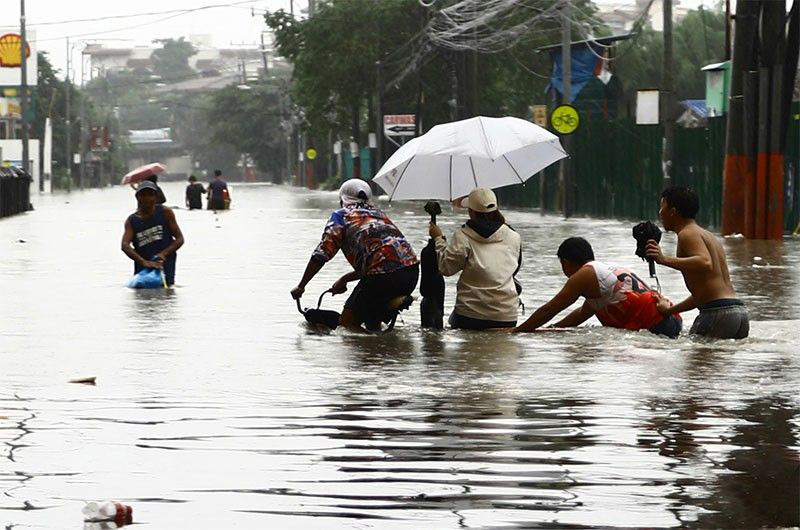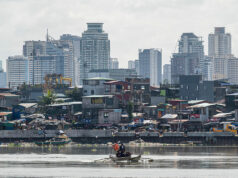Slow fund recovery in infra scam may shake investor confidence, analysts say

By Erika Mae P. Sinaking
PERSISTENT irregularities and slow fund recovery from anomalous flood control projects could continue to disrupt infrastructure programs and weaken investor confidence, analysts said at the weekend.
Such delays negatively impact investor and donor confidence as it gives the impression that donations will just be wasted or that funds may not be recovered, Nathaniel “Dinky” von Einsiedel, chairman and principal urban planner of Consultants for Comprehensive Environmental Planning Inc. said.
“It’s worse when the scam involves high-level government officials,” Mr. von Einsiedel told BusinessWorld via Viber chat. “Issues in infrastructure projects affect long-term urban and economic growth in several ways.”
These disrupt continuity in the implementation, which could lead to discontinued projects and wasted investments. He also noted that the insufficient upkeep of essential flood control mechanisms, such as flood gates, further undermines project effectiveness.
Investigations into the flood control scandal have revealed that of 8,000 inspected projects nationwide, at least 421 were classified as “ghost” projects, either nonexistent or poorly executed. The schemes reportedly involved inflated costs and kickbacks, implicating lawmakers, contractors, and government officials.
This prompted the ad hoc Independent Commission for Infrastructure (ICI) to convene an interagency meeting last Thursday to coordinate fund recovery and restitution for affected projects.
The Anti-Money Laundering Council (AMLC) has reportedly frozen between P4.6 billion and P5 billion across nearly 2,800 bank accounts tied to the investigations.
The Department of Health, briefing the ICI on Friday, said its probe into government-funded Super Health Centers (SHC) now spans 878 facilities, including 300 inactive ones.
Costs have ballooned in several cases, such as Marikina’s Concepcion Dos SHC (P21.5 million to P201 million) and Antipolo’s SHC (P11.4 million for construction, P7 million for equipment).
Mr. von Einsiedel added that these failures lead to a loss of confidence in government and increase in the perception that projects just foster corruption, “which discourages civic participation in development planning.”
Joy Aceron, convenor-director of Government Watch (G-Watch), said that such fund scandals could jeopardize the Philippines’ reputation with investors and development partners, which could have broader implications.
“Worse if we are not confronting the truth about the extent of corruption… it is crucial that accountability and justice are delivered and reforms are made — to arrest the likely negative effects of this plunder,” she said.
Ms. Aceron flagged systemic weaknesses in accountability despite reforms and government monitoring efforts.
“Infrastructure corruption persists because accountability measures — regulation and monitoring — are not effective,” Ms. Aceron said in a Facebook Messenger chat.
She explained that oversight is often weakened or compromised by powerful vested interests embedded in multilevel corruption and patronage networks, with insufficient resources and political support to enforce regulations effectively.
“In the case of this flood control plunder, there was an ecosystemic breakdown of state accountability,” she added.
G-Watch, a civil society organization focused on citizen monitoring and government accountability, called for stronger transparency, participation, and accountability in infrastructure by giving citizens access to project information, consultation, and feedback, while holding agencies and contractors accountable for compliance.
The organization also urged the creation of independent multisectoral monitoring bodies with clear mandates, sufficient budgets, and technical support to strengthen oversight, improve project outcomes, and curb mismanagement and plunder in infrastructure initiatives.



